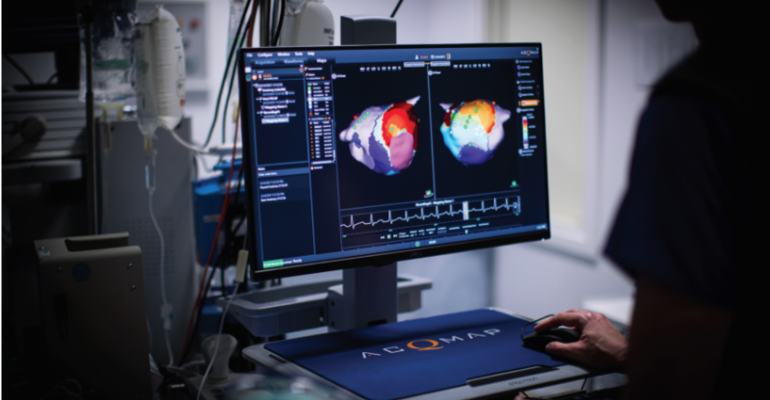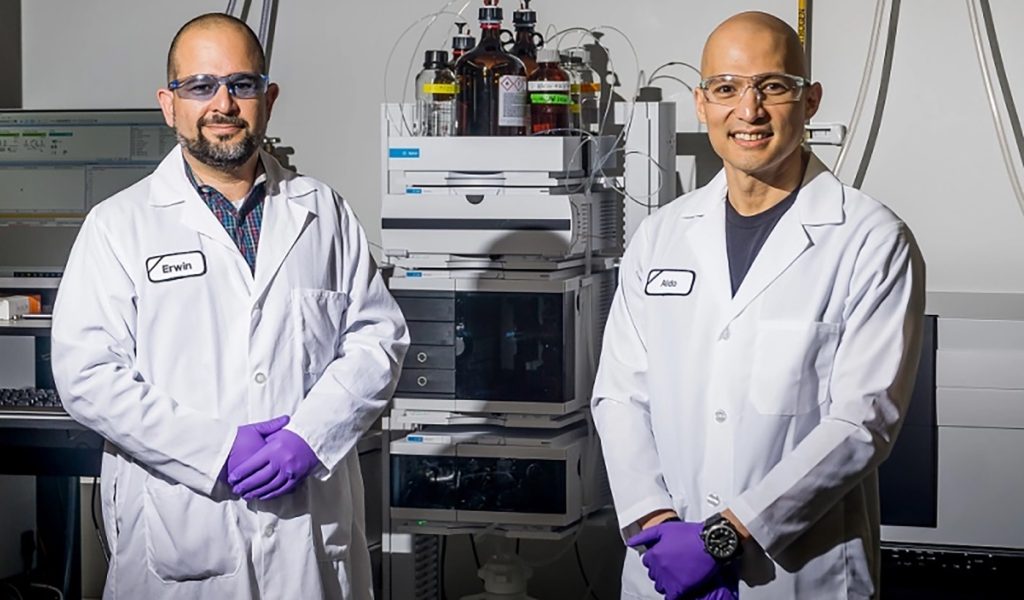Acutus Medical today released 12-month data from the Uncover-AF trial of its AcQMap cardiac imaging and mapping system exploring its use in persistent atrial fibrillation ablation procedures.
Results from the trial were presented at the 24th Annual AF Symposium in Boston, the Carlsbad, Calif.-based company said.
Acutus Medical’s AcQMap system is designed to detect and display standard voltage-based and higher resolution charge-source maps, and is able to generate real-time, 3D images of the heart chamber using ultrasound.
“We have mapped arrhythmias with the same technology for decades without asking if there’s a better way to locate ablation targets and deliver a more precise, patient-specific therapy. The results of the Uncover-AF trial demonstrate that with better imaging, we can perform patient-centric ablations with great success, while dramatically improving patient quality of life. This advanced cardiac imaging system paints a complete, high-definition picture in real time and is an important step in advancing the standard of care for AF ablation procedures,” principal investigator Dr. Atul Verma said in a prepared statement.
Investigators in the 127-patient trial explored the use of the AcQMap system in combination with a variety of on-market ablation tech at 13 sites across Europe and Canada, Acutus said.
Results from the trial indicated a 72.5% single-procedure freedom from AF at 1 year, while post-ablation monitoring indicated that 89.6% of the single-procedure patients experienced no episodes of AF.
Data also indicated that 98% of patients achieved sinus rhythm by the end of the procedure, with freedom from AF reported in 93% of patients with one or two procedures. A total 82.4% of patients reported experiencing no AF episodes in the year following, Acutus said.
“Acutus Medical has an unwavering focus on developing technology that accelerates success and improves outcomes in electrophysiology procedures. A historical lack of innovation in cardiac mapping led to the unfortunate and common belief that repeat ablations are simply unavoidable; the UNCOVER-AF results suggest we can do better with AcQMap imaging and adaptive therapy. These early results have only scratched the surface of potential. Unprecedented clarity with AcQMap could help physicians improve AF ablation outcomes by providing tailored therapy options and reducing the need for repeat procedures. That’s improvement that saves time, reduces financial burden and most importantly makes life better for patients,” CEO Vince Burgess said in a press release.
Last May, Acutus Medical said that it launched the AcQMap high-resolution imaging & mapping system and the 3D mapping catheter that goes by the same name, touting that the system had been used in its first commercial procedures.




